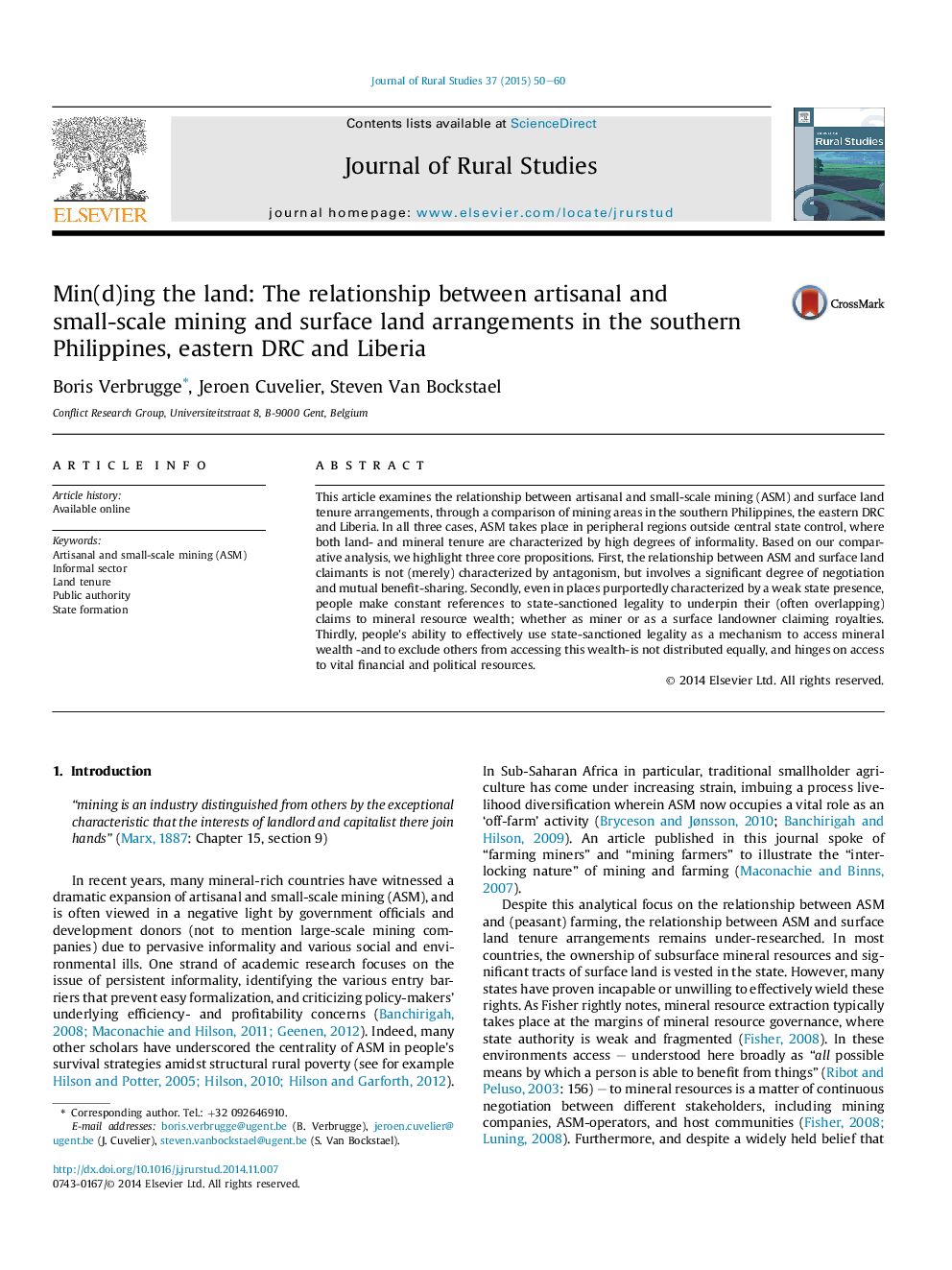| Article ID | Journal | Published Year | Pages | File Type |
|---|---|---|---|---|
| 6545700 | Journal of Rural Studies | 2015 | 11 Pages |
Abstract
This article examines the relationship between artisanal and small-scale mining (ASM) and surface land tenure arrangements, through a comparison of mining areas in the southern Philippines, the eastern DRC and Liberia. In all three cases, ASM takes place in peripheral regions outside central state control, where both land- and mineral tenure are characterized by high degrees of informality. Based on our comparative analysis, we highlight three core propositions. First, the relationship between ASM and surface land claimants is not (merely) characterized by antagonism, but involves a significant degree of negotiation and mutual benefit-sharing. Secondly, even in places purportedly characterized by a weak state presence, people make constant references to state-sanctioned legality to underpin their (often overlapping) claims to mineral resource wealth; whether as miner or as a surface landowner claiming royalties. Thirdly, people's ability to effectively use state-sanctioned legality as a mechanism to access mineral wealth -and to exclude others from accessing this wealth-is not distributed equally, and hinges on access to vital financial and political resources.
Keywords
Related Topics
Life Sciences
Agricultural and Biological Sciences
Forestry
Authors
Boris Verbrugge, Jeroen Cuvelier, Steven Van Bockstael,
